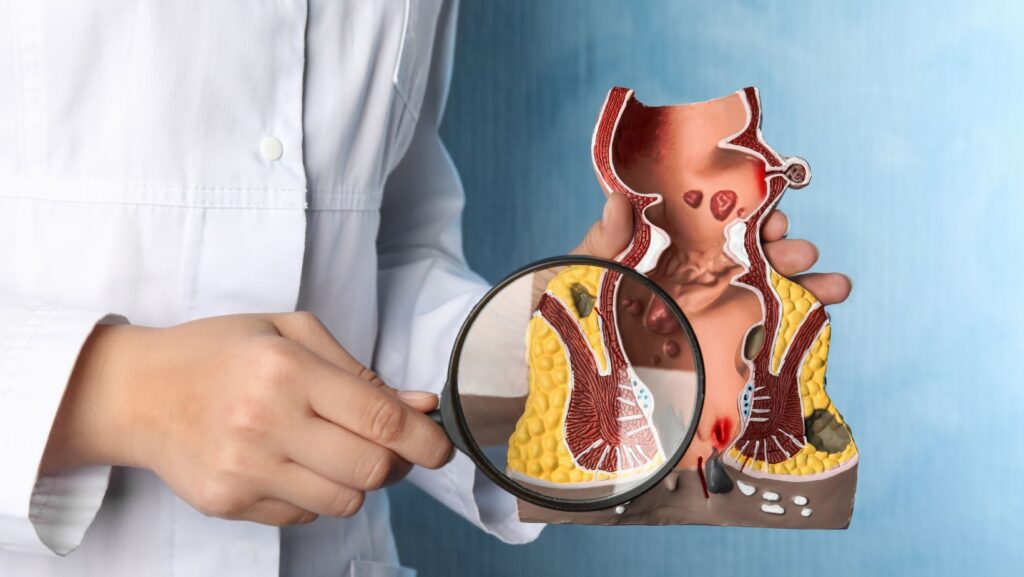Dealing with the discomfort and embarrassment of hemorrhoids can be a frustrating experience, but there is hope. This comprehensive article aims to provide readers with trusted tips and effective solutions for managing and relieving this common condition. From understanding the causes and symptoms of hemorrhoids to exploring various treatment options, including over-the-counter remedies, prescription medications, and minimally invasive procedures, we’ll cover it all. By the end of this article, you’ll have a better understanding of hemorrhoids and feel empowered to take steps toward finding lasting hemorrhoid relief.
Whether you’re struggling with mild hemorrhoid symptoms or dealing with more severe cases, this article will offer practical guidance on how to effectively treat hemorrhoids and prevent their recurrence. From exploring natural remedies for hemorrhoids to discussing the latest advancements in medical treatments, we’ll provide you with the information you need to make informed decisions about your healthcare and find the solutions that work best for you.
Understanding Hemorrhoids: Causes and Symptoms
Hemorrhoids, a common condition affecting the anorectal region, can be a source of discomfort and distress for many individuals. To better understand this condition, it’s essential to explore the causes of hemorrhoids and the signs and symptoms that may indicate their presence.
Common Causes of Hemorrhoids
Hemorrhoids typically develop when the veins in the lower rectum or anus become swollen and inflamed. This can occur due to a variety of risk factors, including:
● Chronic constipation or straining during bowel movements
● Pregnancy, which can increase pressure on the anorectal region
● Obesity or excessive weight gain
● Prolonged sitting or standing, particularly on the toilet
● Aging, as the supporting tissues in the anorectal area weaken over time
● Genetics, as some individuals may be predisposed to developing hemorrhoids
Signs and Symptoms to Watch For
If you suspect you may be experiencing hemorrhoid symptoms, it’s important to be aware of the various signs of hemorrhoids that can indicate the presence of this condition. Some common hemorrhoid symptoms include:
● Bleeding during bowel movements, often resulting in bright red blood on the toilet paper or in the toilet bowl
● Itching, burning, or discomfort in the anorectal area
● Swollen, protruding veins around the anus, which may be painful or tender to the touch
● A feeling of fullness or a bulge in the anorectal region, particularly after a bowel movement
● Difficulty maintaining proper hygiene and discomfort when wiping

By understanding the causes of hemorrhoids and recognizing the signs and symptoms associated with this condition, individuals can take proactive steps to seek appropriate treatment and find relief.
Hemorrhoid Treatment Options
When it comes to managing hemorrhoids, individuals have access to a variety of effective hemorrhoid treatment options. From over-the-counter remedies to prescription medications and minimally invasive procedures, there are numerous solutions available to provide relief and promote healing.
Over-the-Counter Remedies
For mild to moderate over-the-counter hemorrhoid relief, a wide range of topical creams, ointments, and suppositories are available. These products often contain ingredients like hydrocortisone, witch hazel, or numbing agents that can help alleviate symptoms such as itching, swelling, and discomfort. Many of these over-the-counter hemorrhoid treatmentscan be found at local pharmacies or drugstores, providing a convenient and accessible option for managing the condition.
Prescription Medications
In cases where over-the-counter remedies prove insufficient, healthcare professionals may recommend prescription medications for hemorrhoids. These can include oral formulations, such as stool softeners or anti-inflammatory drugs, as well as topical prescription creams or ointments. These prescription medications for hemorrhoids are typically reserved for more severe or persistent cases, and they may be combined with other treatment approaches for optimal results.
Minimally Invasive Procedures
For individuals with more advanced or complicated hemorrhoids, minimally invasive hemorrhoid procedures may be considered. These include techniques like rubber band ligation, where a small rubber band is placed around the base of the hemorrhoid to cut off its blood supply, causing it to shrink and fall off. Another option is infrared coagulation, which uses heat energy to shrink and destroy the hemorrhoidal tissue. These minimally invasive hemorrhoid procedures are often performed in an outpatient setting, with minimal discomfort and a quick recovery time for the patient.
When dealing with the discomfort of hemorrhoids, using a reliable hemorrhoid ointment can provide significant relief and aid in the healing process.
Preventing Hemorrhoids: Lifestyle Changes
To effectively prevent and manage hemorrhoids, making strategic lifestyle adjustments can make a significant difference. By focusing on dietary modifications, incorporating regular exercise, and maintaining proper hygiene practices, individuals can take proactive steps to reduce their risk of developing this common condition.
Dietary Modifications
One of the key factors in preventing hemorrhoids is maintaining a fiber-rich diet. Increasing the consumption of high-fiber foods, such as fruits, vegetables, whole grains, and legumes, can help to soften stool and prevent constipation, which can lead to the development of hemorrhoids. Additionally, staying hydrated by drinking plenty of water throughout the day can further contribute to regular and healthy bowel movements, reducing the strain associated with passing stool.
Exercise and Activity
Regular physical activity can play a crucial role in preventing hemorrhoids. Engaging in low-impact exercises, such as walking, swimming, or cycling, can help to improve blood circulation and alleviate the pressure on the veins in the anorectal region.

Moreover, incorporating pelvic floor exercises, such as Kegel exercises, can strengthen the muscles that support the rectum and anus, further reducing the risk of hemorrhoid development.
Proper Hygiene Practices
Maintaining good hygiene habits is another important aspect of preventing hemorrhoids. Gentle cleansing of the anorectal area, avoiding excessive wiping, and using soft, fragrance-free toilet paper can help to minimize irritation and discomfort. Additionally, incorporating sitz baths or using witch hazel pads can provide relief and promote healing for individuals who have already developed hemorrhoids.
FAQ
What are the common causes of hemorrhoids?
Hemorrhoids are often caused by increased pressure in the veins of the anorectal area, which can be due to factors like constipation, pregnancy, obesity, heavy lifting, and prolonged sitting or standing. Straining during bowel movements and a family history of hemorrhoids can also contribute to their development.
What are the typical signs and symptoms of hemorrhoids?
The most common symptoms of hemorrhoids include bleeding during bowel movements, itching or irritation in the anal area, pain or discomfort, and the presence of swollen veins around the anus. In some cases, hemorrhoids may prolapse, meaning they protrude from the anus.
What over-the-counter remedies can provide relief for hemorrhoids?
Over-the-counter treatments for hemorrhoids include topical creams, ointments, and suppositories containing active ingredients like hydrocortisone, witch hazel, or numbing agents. These can help alleviate symptoms like pain, itching, and inflammation. Sitz baths and using over-the-counter pain relievers may also provide relief.
When might prescription medications be necessary for treating hemorrhoids?
Prescription medications for hemorrhoids may be recommended by healthcare professionals for more severe or persistent cases. These can include oral medications to reduce inflammation or topical treatments with higher concentrations of active ingredients compared to over-the-counter options.
What are some minimally invasive procedures for treating hemorrhoids?
For individuals with more advanced or recurring hemorrhoids, minimally invasive procedures like rubber band ligation, infrared coagulation, or hemorrhoid banding may be recommended. These procedures involve cutting off the blood supply to the hemorrhoid, causing it to shrink and eventually fall off.
How can dietary and lifestyle changes help prevent hemorrhoids?
Maintaining a high-fiber diet, staying hydrated, and engaging in regular physical activity can help prevent the development or recurrence of hemorrhoids by promoting regular and healthy bowel movements. Proper hygiene practices, such as gentle cleaning and avoiding excessive straining, can also help reduce the risk of hemorrhoids.


